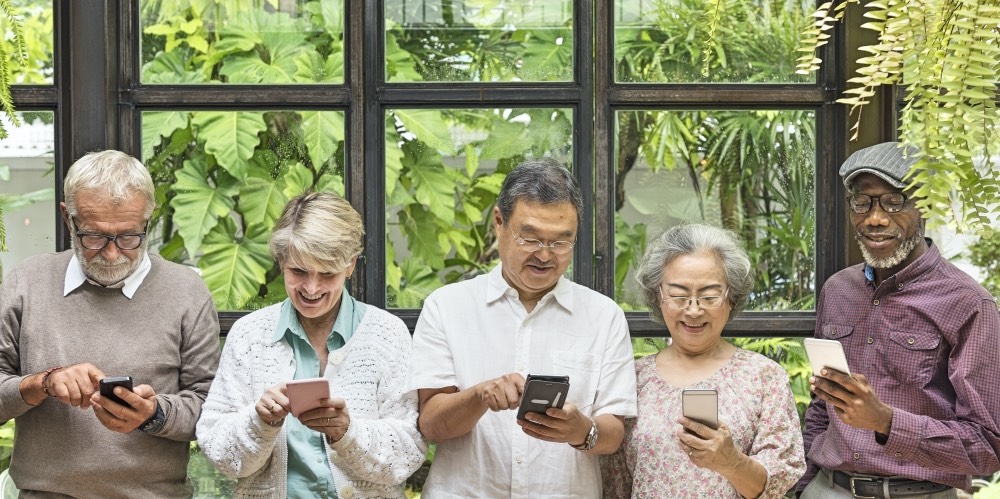One weekend in October 2019, the Senior Citizen’s cell at my church in Borivali (W) in Mumbai invited me to conduct a mobile technology workshop. There were around 40 attendees, with most of them being in the 60 – 65 years age group. Some were closer to 70 years as well. Most of them had smartphones and a few owned feature phones. A planned 1.5-hour workshop extended to three hours, with most of the participants waiting till the end! At the end of the workshop, I concluded that senior citizens want to do some basic things with their phones, and their favourite app is WhatsApp! I share my experiences from that workshop in this post. Ironically, the very next day, a priest was conducting a workshop in this very church, titled ‘Gadget de-addiction’.
In the days and weeks preceding the workshop, I prepared an elaborate PPT with lots of topics, some explaining the architecture of the phones and the various platforms. With the utmost care, I made detailed schematic diagrams to support my explanations of technical concepts. But eventually, that wasn’t really required, and I realised that I was over-preparing. The leader of the cell (who invited me) reviewed my PPT on the eve of the workshop and asked me to remove many slides, mainly the ones with technical explanations. “They would not need that, and won’t get it,” he advised. “Keep it simple and not more than an hour,” he quipped.
So it was another few hours of work on the PPT which had to be “dumbed down.” I was also in the hall on the previous day testing the ceiling-mounted Epson projector and struggling to connect my smartphone to it, using Wi-Fi Direct. We finally succeeded with some help from a techie.
I arrived an hour early on the morning of the presentation. It was a Saturday and I was surprised to see so many seniors in the hall at 9:00 am. Coffee and snacks were served. I greeted everyone and some pulled out their phones and were asking me questions like, “How do I save my battery?” and “How do I turn on the Wi-Fi?”.
After the host introduced me, we said a prayer and got right to it. I was overwhelmed with questions in the first 30 minutes and had to deviate from the flow many times.
But it was always about the most basic things–which they struggled to do with their phones. Here’s a sampling of what they asked: Deleting multiple chats in a WhatsApp group; turning on the power saving feature; locking and unlocking the phone; doing a video call through WhatsApp; downloading a new app from the Google Playstore; installing anti-virus software; secure mobile payments.
These are things that younger people, particularly the millennials, can do with ease today. But the seniors often have to ask a nephew, niece, or grandchild to help them set up their Wi-Fi connection on their phones. And the ones that live alone (because their children are living abroad) have to beg a neighbour to show them how to do this.
Unlike the younger generation, they did not seem to care about the resolution of their phone camera, the storage capacity, or the screen size and resolution. No one seemed to have heard about 4K video, and I guess they did not care to know.
So it was back to basics and hands-on demos. It helped that I could project my phone screen on the big screen via the Epson projector. But with no Wi-Fi in the hall, I had to rely on my phone’s data connection for the internet-related demos (Google Playstore, Google Drive, etc).
The WhatsApp hands-on part of my presentation was well received and I had to address so many questions! I read somewhere that the age group that spends the maximum time on WhatsApp is 55 – 65 years! And what do they do? Forward a lot of messages, Gifs, videos and other memes received from friends and relatives.
Well, it certainly took a lot of patience and understanding to address the questions from this group. And I really did not mind, as I love teaching technology and sharing my knowledge with anyone.
Unfortunately, this generation did not have mobile phones and the Internet when they grew up. But they were still enthusiastic about catching up. And I guess it is the convenience of, and the necessity for connectivity–which makes the world a smaller place today!
They loved my technology workshop and invited me to do another one at the end of January 2020.









